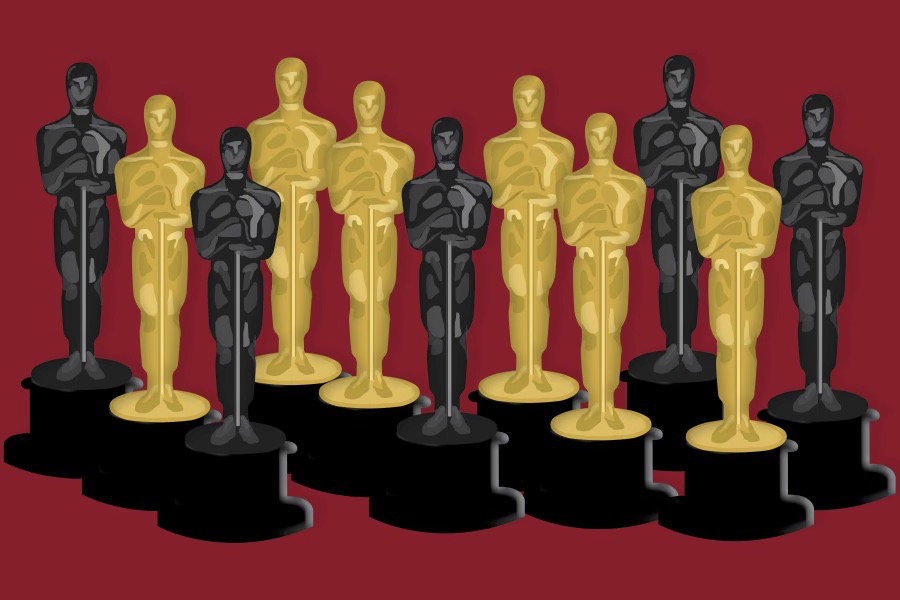If there was one key moment for entertainment that encapsulated 2023, it was the release of “Barbie” and “Oppenheimer.” While both films gained international success, “Barbie” garnered considerably less Oscar nominations than “Oppenheimer,” leading us all to an important question: how can we support feminist film this year?
Greta Gerwig’s “Barbie” evoked powerful emotions in its fans and dealt with themes of womanhood and the patriarchy through a satirical lens. Despite the film’s blockbuster success, it was snubbed for key awards such as Best Director and Best Actress, angering fans who were rooting for their favorite feminist film.
While it is certainly disappointing that Gerwig and Margot Robbie, the film’s lead, were not nominated for Best Director and Best Actress this year, many smaller feminist productions earned nominations, all of which deserve the same level of acclaim as the blockbuster. If we solely focus on “Barbie,” the other impactful women who were recognized will be silenced, in turn undermining the feminist film movement at large. So, as we all tune in to the Oscars this year, I urge us all to focus our energy on uplifting and celebrating women in film as a whole.
Lily Gladstone, nominee for Best Actress, delivered one of the most beautiful performances I saw this year as Mollie Kyle in Martin Scorcese’s “Killers of the Flower Moon.” Also nominated for Best Film, “Killers of the Flower Moon” is an adaptation of the novel by the same name, following the story of the Osage murders in 1920s Oklahoma.
As the character of Mollie, Gladstone portrays a member of the Osage tribe who marries a white settler, beautifully conveying the complicated and intertwined relationships of oppression, family and identity. While sharing scenes with A-listers like Robert DeNiro and Leonardo DiCaprio, Gladstone’s breakout performance is truly what makes “Killers of the Flower Moon” an unforgettable watch.
Not only did Gladstone’s acting capability lead to her nomination for Best Actress, but her experiences as an Indigenous woman allowed her to portray Mollie with a certain authenticity that the role required. Born on the Blackfeet Nation reservation in Montana, Gladstone is the first ever Native American woman to be nominated for Best Actress. By so closely honoring her identity as a Native woman in her work, Gladstone is changing the ways that Native American identities and experiences are portrayed in the media. While I hope she is recognized for her impactful work this year, even if Gladstone does not leave the 2024 Oscars with her first academy award, she will certainly be a strong actress to watch as she continues to make her Hollywood debut.
Most other categories were filled with snubs, but the nominations for Best Supporting Actress did not surprise at all. Danielle Brooks’ supporting role as Sofia in Blitz Bazawule’s remake of “The Color Purple” was especially eye-catching. Based on both the novel by Alice Walker and the original 1985 movie, “The Color Purple” is an essential part of both American film and literature canon, providing a poignant look into Black experiences in the Jim Crow South. Brooks was absolutely perfect for the role of Sofia, as she paid special attention to the importance of Black womanhood and remaining strong in the face of oppression. Known previously for her work in “Orange is the New Black,” Brooks honors her identity as a Black woman in every role she plays with originality. While already known for her work in theater and television, her amazing performance in “The Color Purple” makes her an actress to keep watching in 2024.
Only one woman was nominated for the highly coveted Best Director award this year. Justine Triet, director of Best Picture nominee “Anatomy of a Fall,” has cemented her status as one of the best feminist filmmakers this year. Arguably her most interesting work yet, “Anatomy of a Fall” conveys female identity and patriarchy by playing into viewers’ biases. In Triet’s words, she wanted to depict “how [women] are treated as monsters for behaving in certain ways that men are usually forgiven for.” By making her main female character an anti-hero, Triet artfully designs a world in which a powerful woman is not immediately punished, thus challenging societal norms of misogyny. After watching “Anatomy of a Fall,” it is safe to say that Triet will be one of the most interesting independent filmmakers to watch in the coming years.
While “Barbie” did not garner as many key awards as fans expected this year, I hope that we can move away from our collective disappointment and instead focus on uplifting other women in film who deserve recognition just as much. As we all tune in around the world to watch this year’s Oscar Awards on March 10, I urge you all to remember this year’s impactful women who have helped pave the way for feminist film.




Leave a Comment